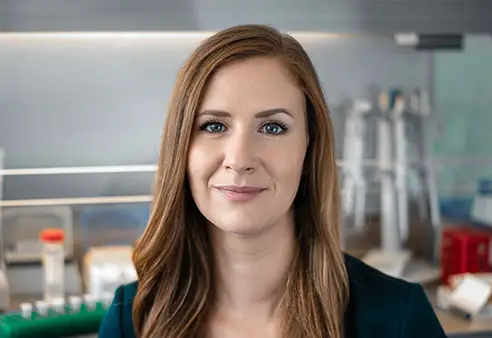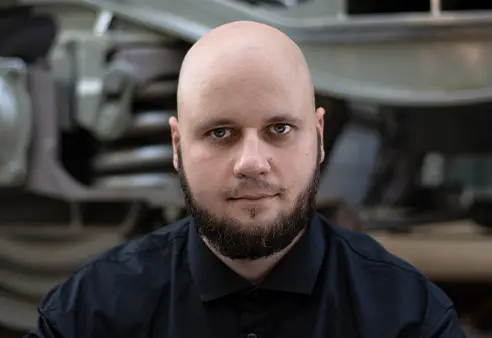Mgr. Svetlana Mikliková, PhD. works at the Institute of Experimental Oncology of the Biomedical Centre of the Slovak Academy of Sciences. The main subject of her research is molecular signalling within the tumour microenvironment of breast cancer. The microenvironment is the area around the tumour cell that is made up of healthy cells. These greatly affect the growth and behaviour of the tumour.
"We study how non-tumour cells communicate with cancer cells and how they influence their behaviour. We are therefore interested in whether they are able to influence the treatment in any way, and if so, through which signalling pathways, and how it could be used for treatment in the future," says Svetlana Miklíková. "Breast cancer is largely surrounded by fat tissue. We isolate mesenchymal stromal cells from it and investigate what changes occur in them due to the presence of a tumour in their vicinity. These cells have several roles in our body, the most important of which is probably the repair of various damages. However, in the microenvironment of the tumour, these cells are altered in such a way that they help it grow.”
Svetlana Miklíková's team needs a lot of fat tissue for their research. They get the healthy tissue thanks to the cooperation with doc. MUDr. Martin Boháč, PhD., while they get the fat tissue from the oncology patients, thanks to professor MUDr. Michal Meg, DrSc., and the surgeons from the National Oncology Institute.
"Understanding how the composition and properties of the tumour microenvironment change throughout the course of tumour development and growth can help us develop new drugs. At the same time, the tumour microenvironment can be a source of new biomarkers, through which we will be able to better select the appropriate treatment for a particular patient, or detect the presence of the tumour in the early stages, thus improving the chances of cure. "
Svetlana Miklíková is also involved in a large European project, which aims to develop a new combination of epigenetic and anticancer drugs with gene therapy targeted against breast cancer stem cells. "We're trying to figure out which signalling pathways and drugs could help patients with certain characteristics. Foreign workplaces will analyse the results of clinical trials that have already happened - a large number of patients from all over Europe will be involved in the project. Our role at the Biomedical Centre will be to develop models of chemoresistant tumour cells, which we will be able use to test the results of foreign colleagues."
Svetlana Miklíková earned her degree at the Department of Molecular Biology, Faculty of Science, Comenius University. In hindsight, she appreciates that the faculty invited significant Slovak scientists to the lectures, who provided students not only with useful knowledge, but also with information on how and where to obtain good internship.
Thanks to winning a grant, she also spent several months at the Olomouc Institute of Molecular and Translational Medicine, where she worked on models of cancer. In 2016, she won the first place for her dissertation at the National Competition of Young Oncologists, organized by the Cancer Research Foundation. In her free time, she likes to go hiking and mushroom picking and she reads books.



